Portraits

Avel·lí Artís-Gener, conocido por el seudónimo Tísner, (1912 – 2000), escritor, periodista, caricaturista, escenógrafo y publicista.
Durante la Guerra Civil española, luchó en el bando republicano y posteriormente se exilió en México durante varios años antes de regresar a Cataluña.
Algunas de sus obras más notables incluyen “Paraules d’Opoton el Vell” (1968) y su serie de memorias “Viure i veure” publicada en cuatro volúmenes entre 1989 y 1996. Premio Prudenci Bertrana y el Premio de Honor de las Letras Catalanas. Presidente de la Asociación de Escritores en Lengua Catalana de 1990 a 1995.
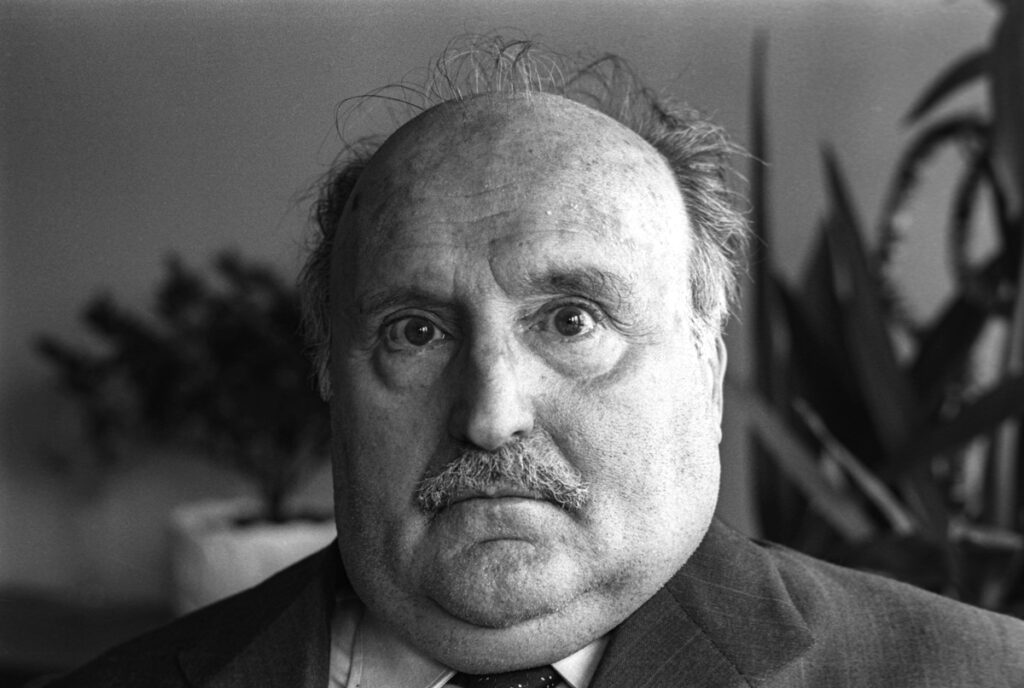
Fabià Estapé 1923 – 2012. Graduate in Law and Economic Sciences from the University of Barcelona. Later, he became a professor of Economic Policy. He was rector of the University of Barcelona in two periods: 1969-1971 and 1974-1976. He held the position of Deputy Commissioner of the Development Plan during the Franco regime. He was a member of the Royal Academy of Economic and Financial Sciences.
He introduced the ideas of the economists John Maynard Keynes and Joseph Schumpeter to Spain. He published numerous books and articles on economics and economic policy. “Essays on Spanish economy” (1972) “Trial of Franco” (2005) “Deu grans catalans” (2006), Cross of Alfonso Charles I in 2004
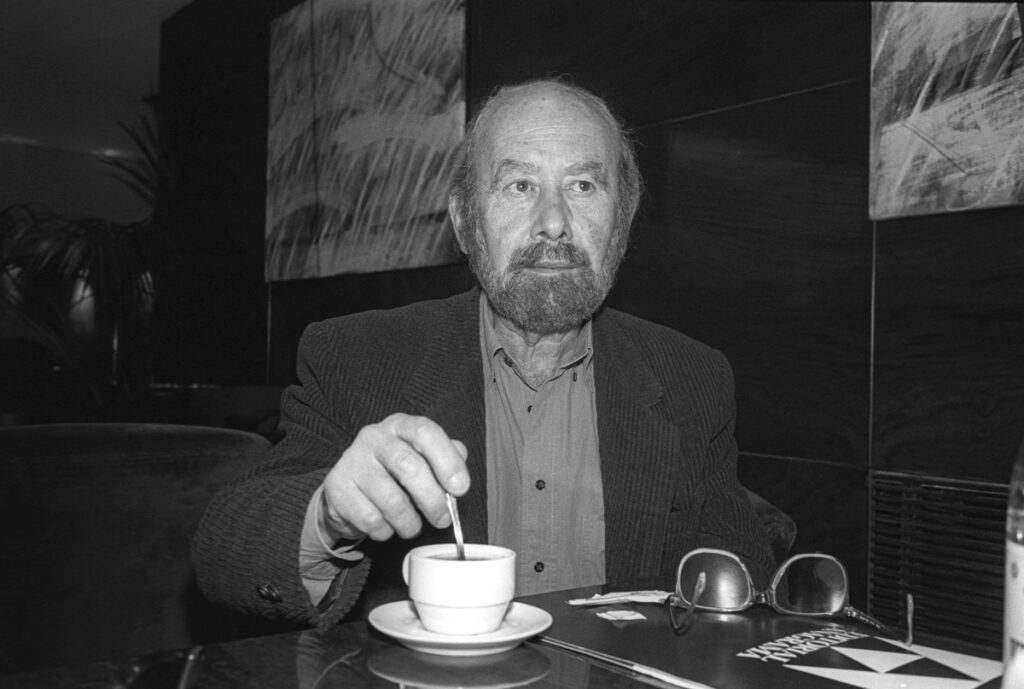
José Manuel Caballero Bonald 1926 – 2021. His literary career spanned various genres, including poetry, novels, and essays.
He was part of the Generation of ’50, a group of post-war Spanish writers. His poetic work was characterized by a deep reflection on language and human existence. Among his most notable works are the collections of poems “Las divinaciones” (1952), “Memories of little time” (1954) and “Discredit of the hero” (1977). In the field of narrative, novels such as “Two Days of September” (1962) and “Ágata Ojo de Cat” (1974), the latter winner of the Barral Prize, other awards and recognitions: Reina Sofía Prize for Ibero-American Poetry (2004 ) National Prize for Spanish Literature (2005) Cervantes Prize (2012).

Fabià Estapé 1923 – 2012. Graduate in Law and Economic Sciences from the University of Barcelona. Later, he became a professor of Economic Policy. He was rector of the University of Barcelona in two periods: 1969-1971 and 1974-1976. He held the position of Deputy Commissioner of the Development Plan during the Franco regime. He was a member of the Royal Academy of Economic and Financial Sciences.
He introduced the ideas of the economists John Maynard Keynes and Joseph Schumpeter to Spain. He published numerous books and articles on economics and economic policy. “Essays on Spanish economy” (1972) “Trial of Franco” (2005) “Deu grans catalans” (2006), Cross of Alfonso Charles I in 2004
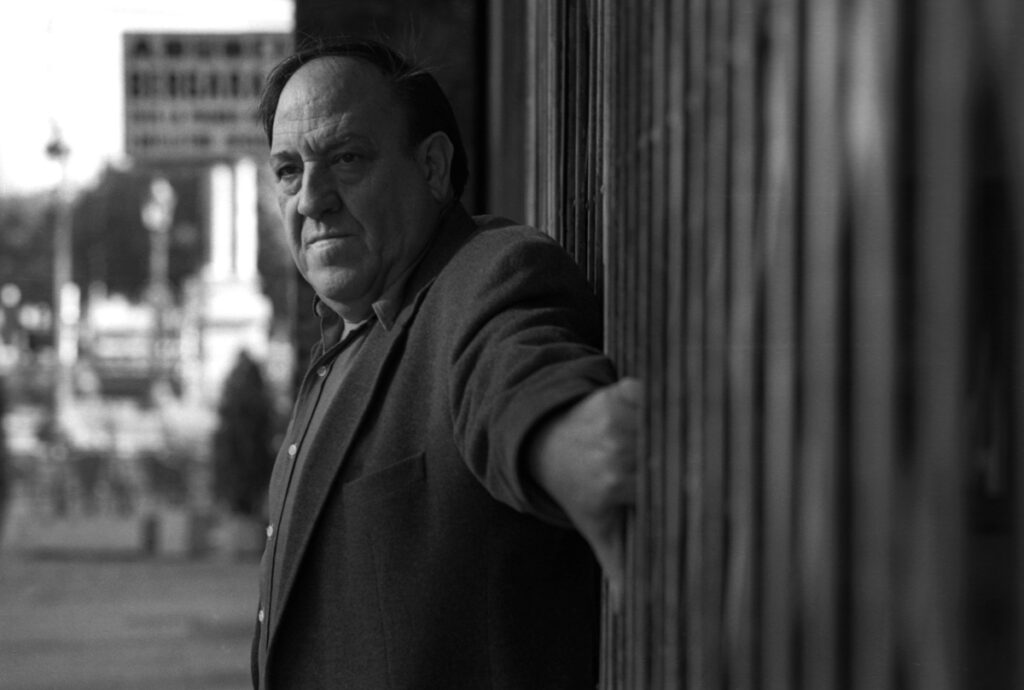
Javier Tomeo Estallo (1932 – 2013)
He studied Law and Criminology at the University of Barcelona.
His work is characterized by its brevity and structural schematism, direct and simple language, humor and absurdity, themes such as loneliness, anguish and lack of communication.
He began his literary career in 1967 with the novel “The Hunter”, although he had previously published an essay titled “Witchcraft and Superstition in Catalonia” (1963) as a co-author.
“Beloved Monster” (1985), “The Castle of the Encrypted Letter” (1979), “The Bolero Singer” (2005), “The Look of the Inflatable Doll” (2003). Aragón Prize for Literature (1994) and Gold Medal from the Zaragoza City Council (2005).
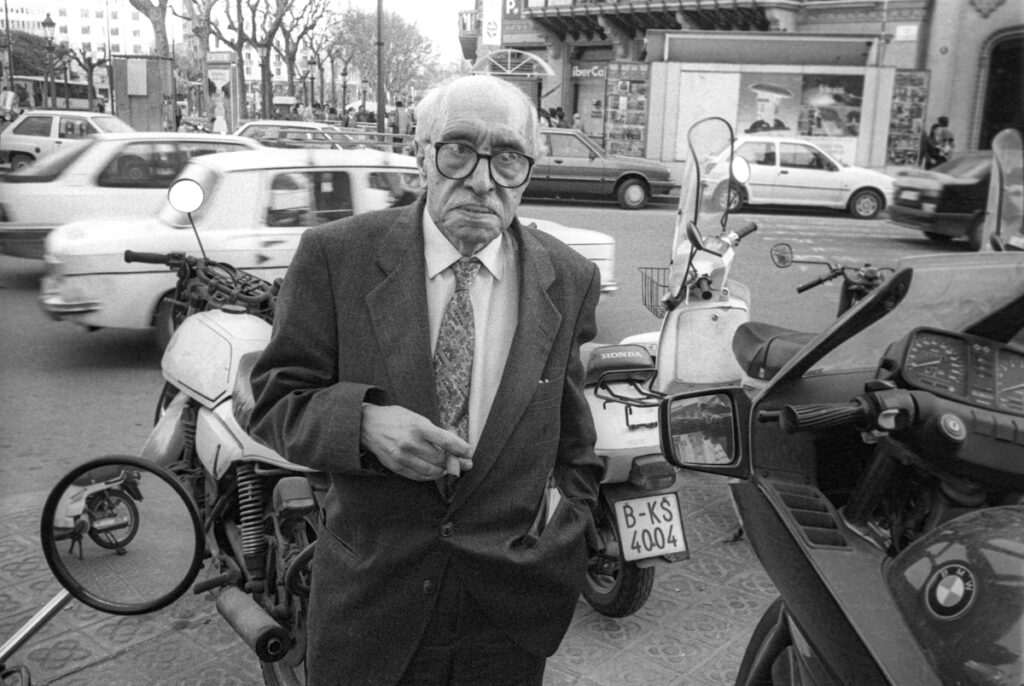
Josep Maria Lladó 1910 – 1996. He worked in several Barcelona newspapers, “La Publicitat” and “La Humanitat”. During the Spanish Civil War, he was a war correspondent for “La Vanguardia”. After the war, he went into exile in France, where he continued his journalistic work. Upon returning to Spain, he collaborated with publications such as “Tele/eXprés” and “Destino”. Among his best-known works is “14 d’abril: Catalunya és una democràcia” Lladó known for his commitment to Catalanism and democracy. He was a member. in Esquerra Republicana de Catalunya (ERC) during the Second Republic.
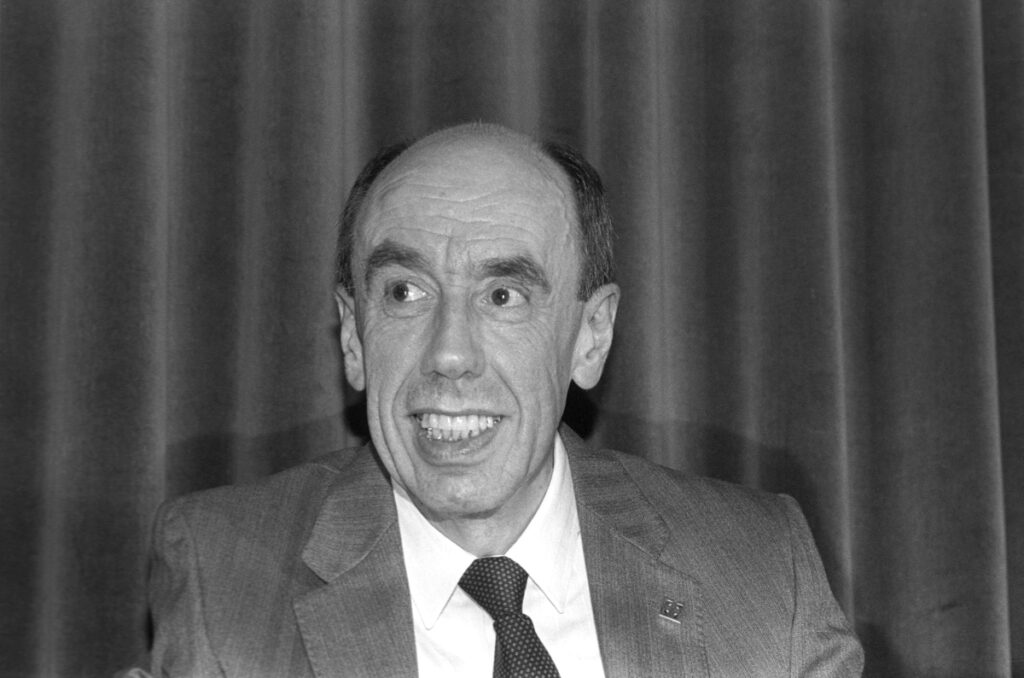
Miquel Martí i Pol 1929 – 2003. His poetry was characterized by: Social and political commitment, Reflection of the workers’ struggle, Personal introspection, Impact of his illness (multiple sclerosis)
In 1953, he published his first book “Paraules al vent”, which won the Óssa Menor Prize.
His work evolved from an initial symbolist style to historical realism, “La fàbrica” (1972), “Estimada Marta” (1978) – considered a poetic best-seller, “El llarg viatge” (1976) – Lletra d’Or Award . Three Critics’ Prizes for Catalan poetry, Creu de Sant Jordi (1983), National Culture Prize (1998), Gold Medal of the Generalitat of Catalonia (1999)
Martí i Pol was also a translator of authors such as Saint-Exupéry, Simone de Beauvoir and Zola.
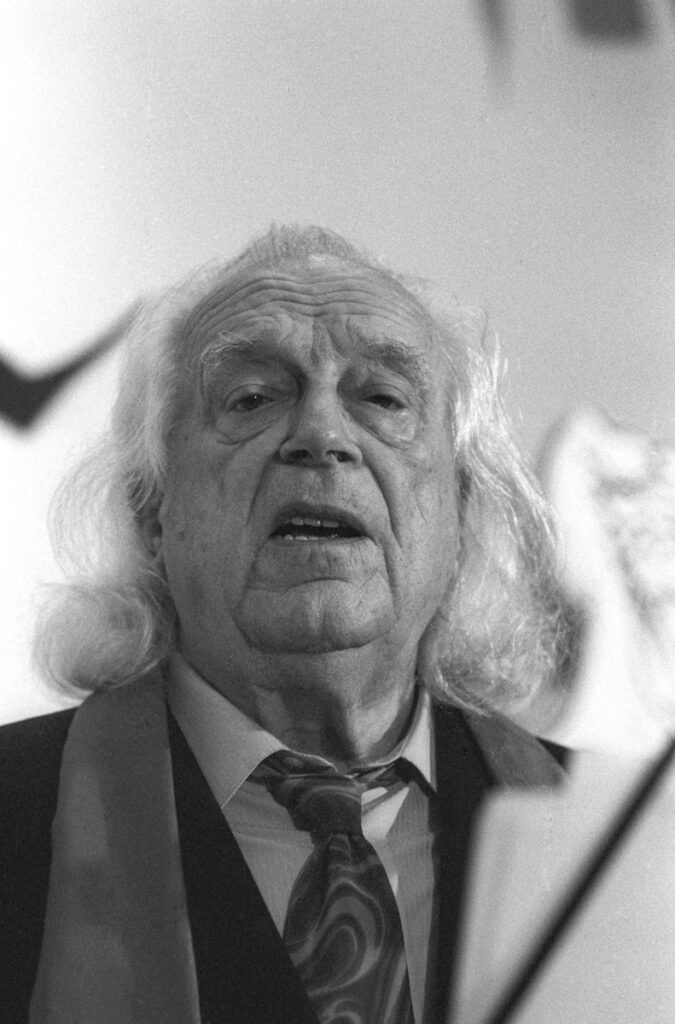
Rafael Alberti Merello (1902 – 1999) Spanish poet, playwright and painter. Member of the Generation of ’27.
Alberti began his artistic career as a painter, but after a lung condition that took him to a sanatorium, he began to write poetry1. His first book, “Marinero en tierra” (1924), earned him the National Literature Prize.
His poetic work evolves between Popularism: influenced by traditional Spanish poetry, Gongorism: “Cal y canto” (1926-1927), Surrealism: “On the angels” (1927-1928), Political poetry: after his affiliation to the Communist Party in 1931, Poetry of nostalgia: during his exile
Alberti was a member of the Spanish Communist Party in 1931. He participated in safeguarding works of art from the Prado Museum during the bombings of Madrid. After the Republican defeat, Alberti went into exile in 1939, living in Argentina and Italy. He returned to Spain in 1977, after Franco’s death. National Prize for Literature (1924-25), Cervantes Prize (1983), Andalusian Prize for Literature (2005, posthumous)

Avel·lí Artís-Gener, conocido por el seudónimo Tísner, (1912 – 2000), escritor, periodista, caricaturista, escenógrafo y publicista.
Durante la Guerra Civil española, luchó en el bando republicano y posteriormente se exilió en México durante varios años antes de regresar a Cataluña.
Algunas de sus obras más notables incluyen “Paraules d’Opoton el Vell” (1968) y su serie de memorias “Viure i veure” publicada en cuatro volúmenes entre 1989 y 1996. Premio Prudenci Bertrana y el Premio de Honor de las Letras Catalanas. Presidente de la Asociación de Escritores en Lengua Catalana de 1990 a 1995.
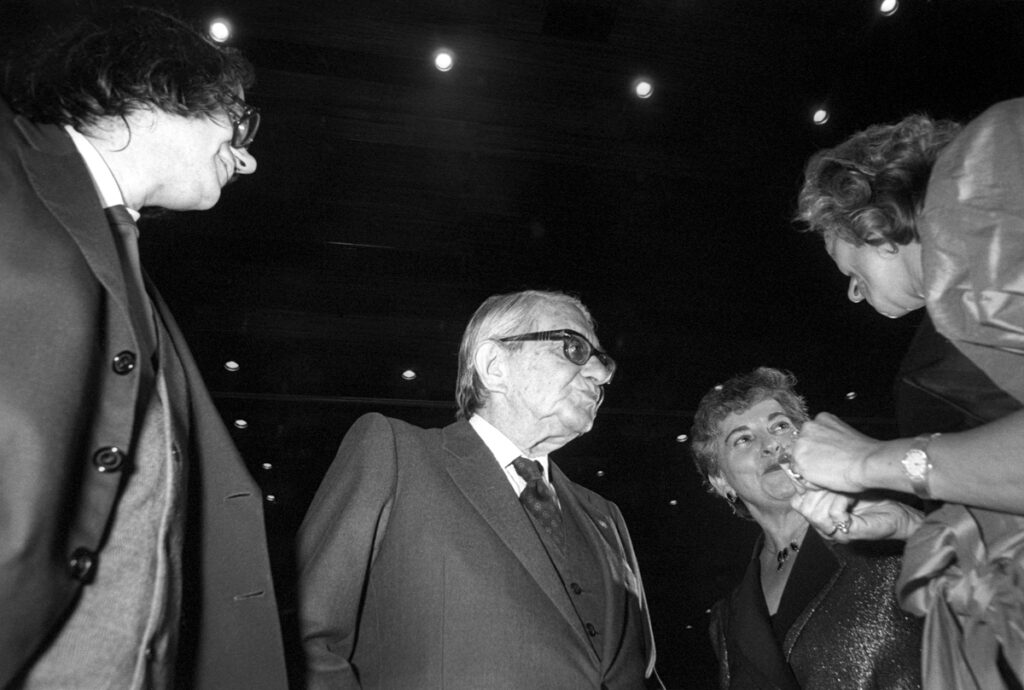
Gonzalo Torrente Ballester (1910 – 1999), was a professor of History at the University of Santiago and later taught at North American institutes and universities. He began his literary career with an interest in theater, publishing works such as “El casamiento deceptive” (1939) and “Lope de Aguirre” (1941). His first novel, “Javier Mariño”, appeared in 1943.
In 1966 he moved to the United States to teach at the University of Albany (New York).
Featured works The trilogy “The joys and the shadows”, “Don Juan” (1963), “The saga/fugue of J.B.” (1972), which earned him the City of Barcelona Prize and the Critics’ Prize, “The Island of Cut Hyacinths” (1982), “Filomeno, a mi spite” (1988), winner of the Planeta Prize. Member of the Royal Spanish Academy in 1975, National Prize for Literature in 1981. Prince of Asturias Prize for Literature in 1982. Cervantes Prize in 1985.
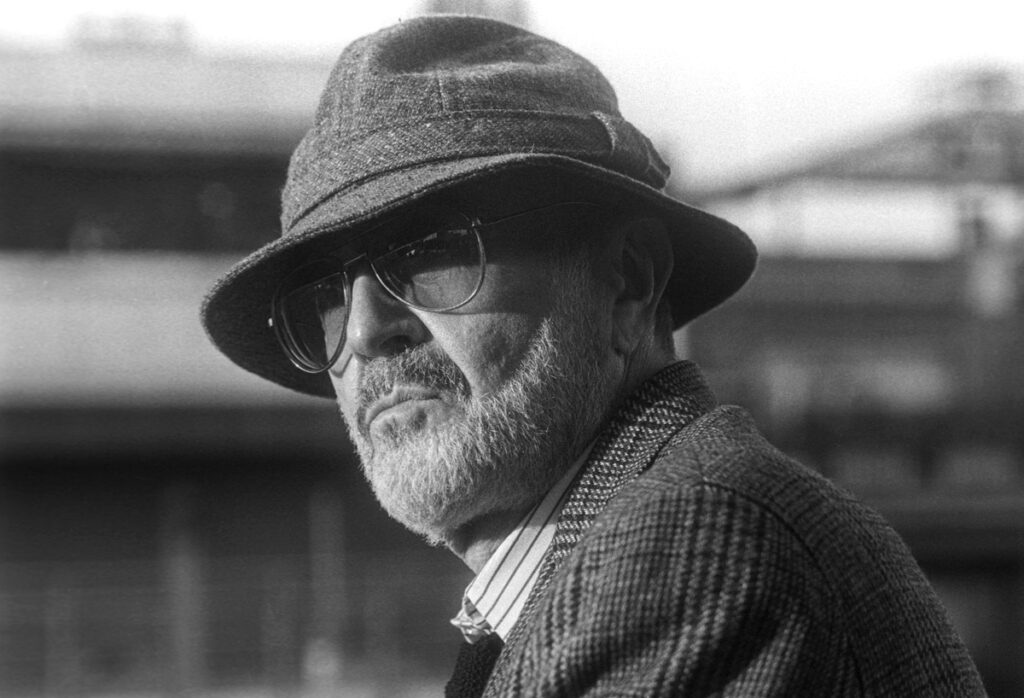
Harold Brodkey, 1930 – 1996, born Aaron Roy Weintraub, began his career writing short stories for The New Yorker and other magazines. Her first collection of short stories, “First Love and Other Sorrows” (1958), In 1964 she signed a contract to write her first novel, which took 32 years to complete. Finally published in 1991 as “The Runaway Soul”.

Javier Tomeo Estallo (1932 – 2013) studied Law and Criminology at the University of Barcelona.
His work is characterized by its brevity and structural schematism, direct and simple language, humor and absurdity, themes such as loneliness, anguish and lack of communication.
He began his literary career in 1967 with the novel “The Hunter”, although he had previously published an essay titled “Witchcraft and Superstition in Catalonia” (1963) as a co-author.
“Beloved Monster” (1985), “The Castle of the Encrypted Letter” (1979), “The Bolero Singer” (2005), “The Look of the Inflatable Doll” (2003). Aragón Prize for Literature (1994) and Gold Medal from the Zaragoza City Council (2005).
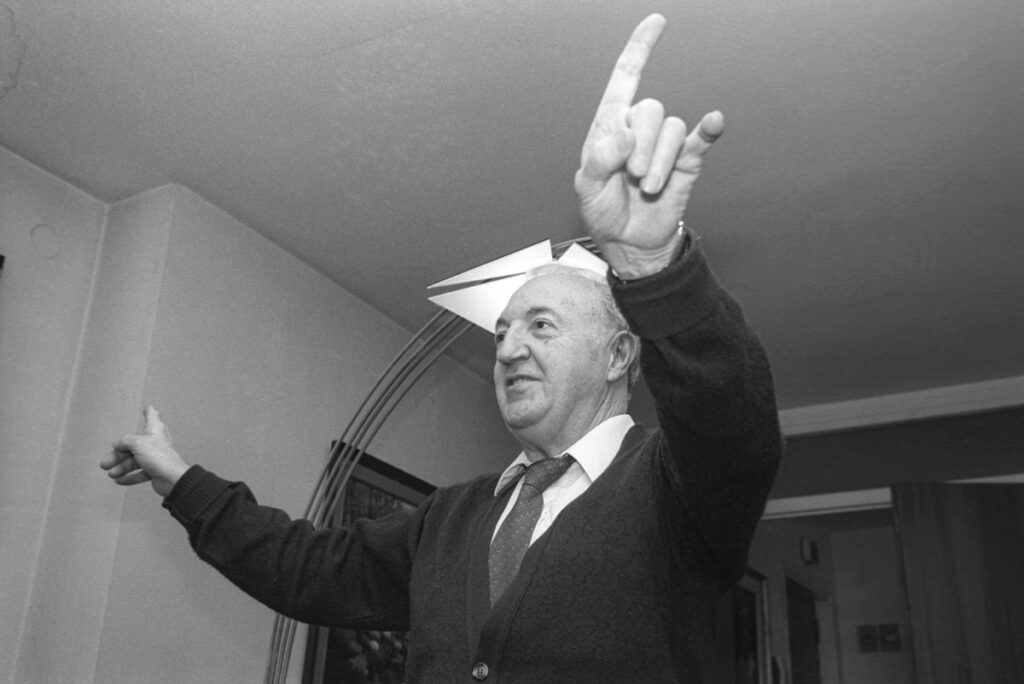
Joan Oró i Florensa, (1923 – 2004), graduated in Chemical Sciences from the University of Barcelona in 1947. In 1952, he emigrated to the United States, where he earned a doctorate in Biochemistry at the Baylor School of Medicine in Houston1. In 1955, he entered the University of Houston, where he later founded and directed the Department of Biochemical and Biophysical Sciences1.
In 1959, Oró managed to synthesize adenine, a molecule crucial for life, from hydrogen cyanide. He participated in several NASA projects, including the Apollo Program and the Viking Program, analyzing lunar samples and developing instruments for the study of Mars1. Precursor to the theory of panspermia, which suggests that life on Earth could have originated from organic matter brought by comets.
Member of the United States Academy of Sciences. After his retirement in 1994, he returned to Spain and promoted projects such as the Montsec Astronomical Park.
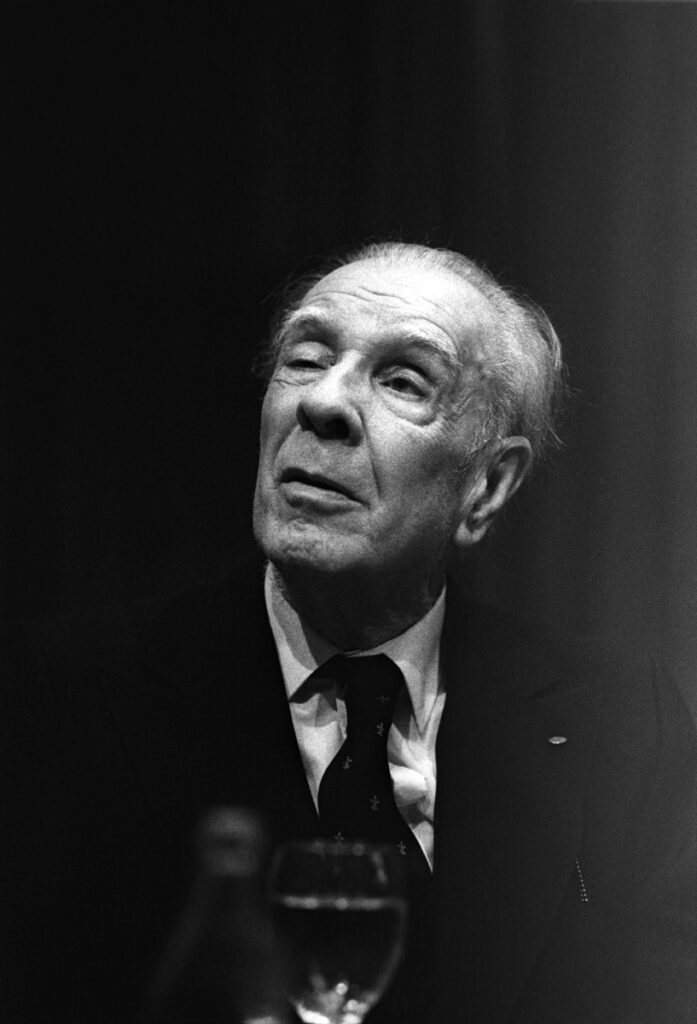
Jorge Luis Borges (Buenos Aires, August 24, 1899 – Geneva, June 14, 1986) was a prominent Argentine writer, poet, essayist and translator, considered a key figure in universal literature of the 20th century.
Literary career
He published his first book of poetry, “Fervor de Buenos Aires”, in 19234.
In the 1940s he published his best-known works: “Ficciones” and “El Aleph.”
He cultivated various genres, deliberately fusing them.
His work is characterized by recurring themes such as time, mirrors, labyrinths and the search for the name of names.
Style and themes
His fictions combine erudition, symbolism and fantastic elements.
He explored philosophical ideas such as memory, eternity, and metafiction.
His prose, apparently simple, is loaded with meaning and capacity for suggestion.
He influenced Latin American magical realism and post-structuralism.
Recognitions
National Literature Prize (1957)
Formentor Prize (1961), shared with Samuel Beckett
Cervantes Prize (1979)
Balzan Prize (1980)
Borges is remembered for his short stories, his original worldview, and his ability to combine elements from diverse literary and philosophical traditions into a unique and transcendental work.

José Manuel Caballero Bonald 1926 – 2021. His literary career spanned various genres, including poetry, novels, and essays.
He was part of the Generation of ’50, a group of post-war Spanish writers. His poetic work was characterized by a deep reflection on language and human existence. Among his most notable works are the collections of poems “Las divinaciones” (1952), “Memories of little time” (1954) and “Discredit of the hero” (1977). In the field of narrative, novels such as “Two Days of September” (1962) and “Ágata Ojo de Cat” (1974), the latter winner of the Barral Prize, other awards and recognitions: Reina Sofía Prize for Ibero-American Poetry (2004 ) National Prize for Spanish Literature (2005) Cervantes Prize (2012).

Josep Maria Lladó 1910 – 1996. He worked in several Barcelona newspapers, “La Publicitat” and “La Humanitat”. During the Spanish Civil War, he was a war correspondent for “La Vanguardia”. After the war, he went into exile in France, where he continued his journalistic work. Upon returning to Spain, he collaborated with publications such as “Tele/eXprés” and “Destino”. Among his best-known works is “14 d’abril: Catalunya és una democràcia” Lladó known for his commitment to Catalanism and democracy. He was a member. in Esquerra Republicana de Catalunya (ERC) during the Second Republic.
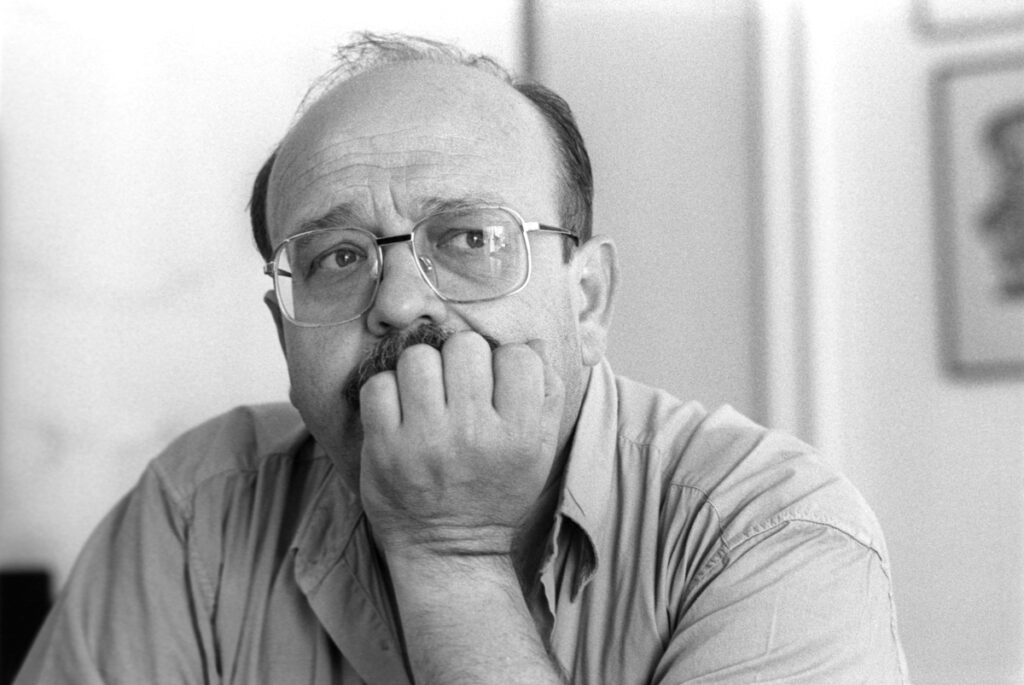
Manuel Vázquez Montalbán (1939 – 2003) writer, journalist and gastronome. His work was characterized by a political and social commitment, with a critical vision of Spanish reality, developing an extensive and varied literary work, novel, essay, poetry and journalism. He created the popular series of novels starring detective Pepe Carvalho, which gave him international recognition. As a journalist I collaborate with: Triunfo, El País and Interviú. Planeta Award (1979), the National Narrative Award (1991) and the National Spanish Literature Award (1995).

Miquel Martí i Pol 1929 – 2003. His poetry was characterized by: Social and political commitment, Reflection of the workers’ struggle, Personal introspection, Impact of his illness (multiple sclerosis)
In 1953, he published his first book “Paraules al vent”, which won the Óssa Menor Prize.
His work evolved from an initial symbolist style to historical realism, “La fàbrica” (1972), “Estimada Marta” (1978) – considered a poetic best-seller, “El llarg viatge” (1976) – Lletra d’Or Award . Three Critics’ Prizes for Catalan poetry, Creu de Sant Jordi (1983), National Culture Prize (1998), Gold Medal of the Generalitat of Catalonia (1999)
Martí i Pol was also a translator of authors such as Saint-Exupéry, Simone de Beauvoir and Zola.
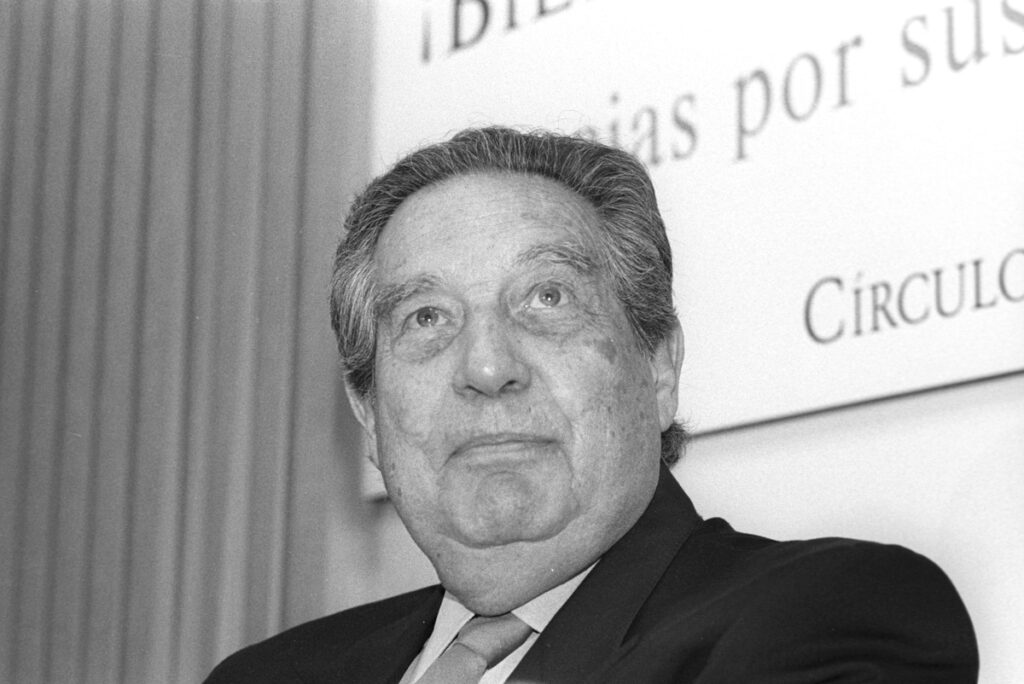
Octavio Paz Lozano (1914 – 1998) He published his first poems at the age of 17 in the magazine Barandal (1931) His first collection of poems, “Luna Silvestre”, 1933. He directed the magazines Taller (1939) and Hijo pródigo (1943). He published nearly 30 books of poems and more than 30 essays. “The Labyrinth of Solitude” (1950) – essay on Mexican identity, “The Bow and the Lyre” (1956) – reflection on poetic creation, “Piedra de Sol” (1957) – collection of poems, “Sor Juana Inés de the Cross or the traps of faith” (1982) – study on the Mexican poet. Cervantes Prize (1981), Nobel Prize in Literature (1990).

Rafael Alberti Merello (1902 – 1999) Spanish poet, playwright and painter. Member of the Generation of ’27.
Alberti began his artistic career as a painter, but after a lung condition that took him to a sanatorium, he began to write poetry. His first book, “Marinero en tierra” (1924), earned him the National Literature Prize.
His poetic work evolves between Popularism: influenced by traditional Spanish poetry, Gongorism: “Cal y canto” (1926-1927), Surrealism: “On the angels” (1927-1928), Political poetry: after his affiliation to the Communist Party in 1931, Poetry of nostalgia: during his exile Alberti was a member of the Spanish Communist Party in 1931. He participated in safeguarding works of art from the Prado Museum during the bombings of Madrid. After the Republican defeat, Alberti went into exile in 1939, living in Argentina and Italy. He returned to Spain in 1977, after Franco’s death. National Prize for Literature (1924-25), Cervantes Prize (1983), Andalusian Prize for Literature (2005, posthumous)
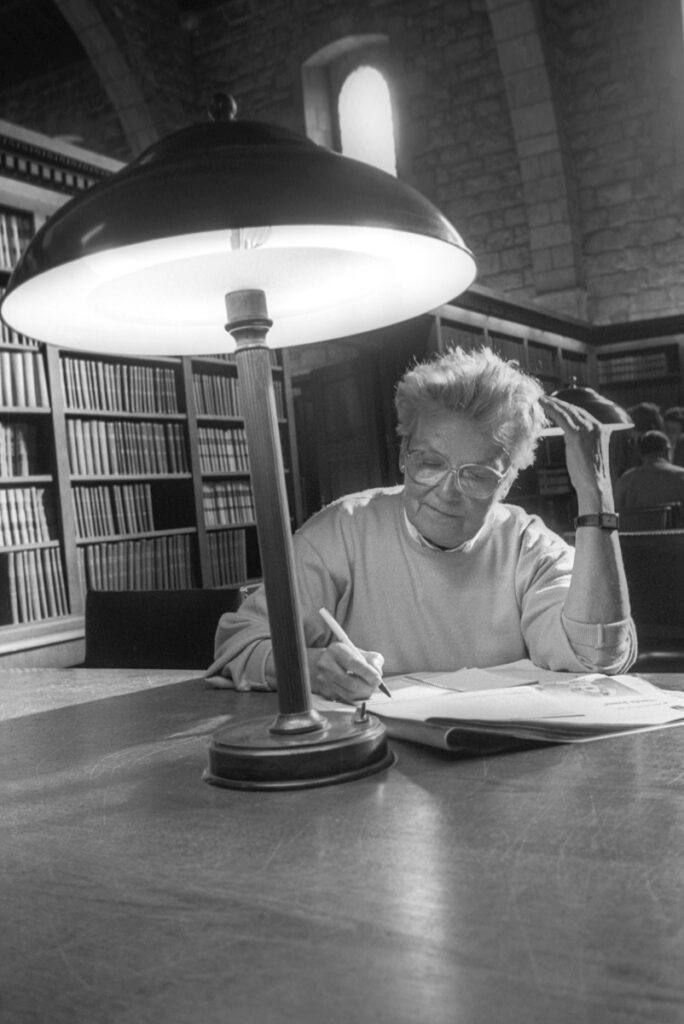
Teresa Pàmies i Bertran (1919 – 2012) Catalan writer, journalist and activist. During the Spanish Civil War he went into exile, living in France, the Dominican Republic, Cuba and Mexico. In 1947 she settled in Prague for 12 years, working as an editor at Radio Prague.
He returned to Catalonia in 1971 and began his literary career characterized by a strong autobiographical and documentary component, addressing topics such as the civil war and exile1.
with “Testament to Prague” (1971), written in collaboration with his father12. This work won the Josep Pla Prize and the Serra d’Or Criticism, Creu de Sant Jordi (1984), other distinctions: Gold Medal from the Barcelona City Council (2000), Honor Prize for Catalan Literature (2001), Manuel Prize Vázquez Montalbán (2006)

Yevgeny Aleksandrovich Yevtushenko (Евге́ний Алекса́ндрович Евтуше́нко) (1933 2017) poeta, novelista y ensayista soviético-ruso, se convirtió en una figura literaria durante el “deshielo” de Jrushchov en la década de 1960. Conocido por su poesía social dirigida principalmente a los jóvenes soviéticos que anhelaban cambios. En el poema “Babi Yar” (1961), denuncia el antisemitismo soviético que conmemoraba la masacre de judíos cerca de Kiev en 1941, ”Los herederos de Stalin” (1962), un poema que advertía contra el resurgimiento del estalinismo. Premio Estatal de la URSS en 1984 y Premio Estatal de la Federación de Rusia en 2009.